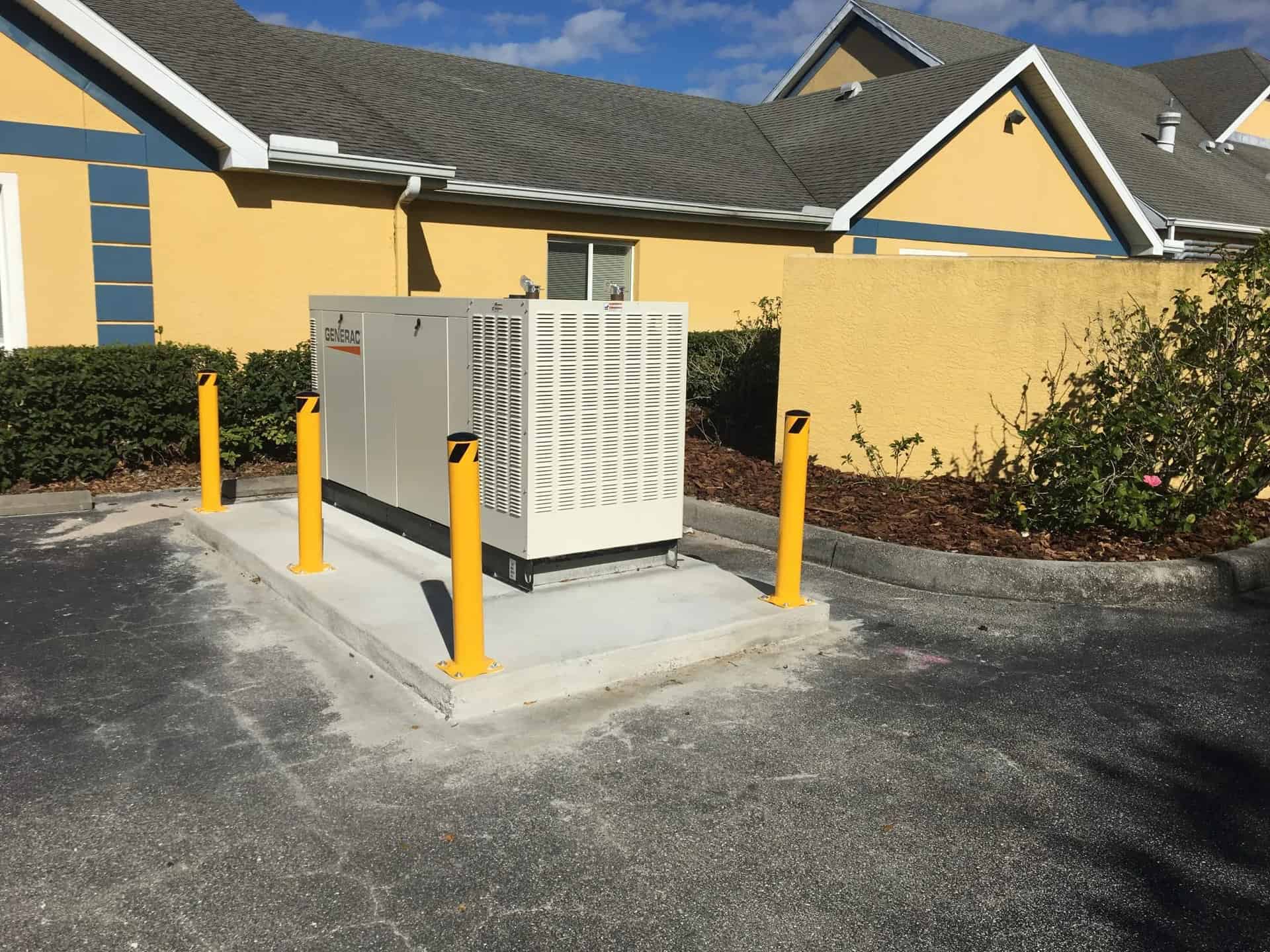When all your neighbors lose power, but your lights are still on, you’ll definitely be happy you invested in a generator. But do you need a standby or portable generator? Both provide the backup power you’re looking for, but there are big differences, including price. Here is a brief overview of each and some factors to consider before purchasing a portable or standby home generator.
Portable Generators
As the name suggests, you can move these generators around, making them a popular choice for outside-the-home activities like tailgating or camping. However, a portable generator large enough to power most home A/C units would be very large and heavy.
Using a 5,500-watt portable generator when the power goes out at home will let you operate most small appliances. But unless a transfer switch is installed, you’ll need to run extension cords from the generator.
You’ll need gasoline to operate the generator and can expect a 5,000-watt generator typically to use about 18 gallons of gasoline per day. There are safety precautions you need to take when storing gasoline and can find best practices in this useful guide from the National Ag Safety Database (NASD). Finding gasoline was a serious challenge before, during and days after Hurricane Irma.
Portable Generator Pros and Cons
Pros
- Not as expensive as standby generators
- Can be used outside of the home for fun, outdoor activities
Cons
- Need to purchase and store fuel to run the generator.
- Require manual exercise once a month to keep in top operating order.
- Carbon monoxide emissions pose health risks and generators should not be operated indoors, near windows, and need to be more than 15 feet from your home.
- Creates difficulty for where to run the generator if you want power during a storm-related outage.
- Can take up to two hours to get power restored.
- Easy to steal
- Noisy and most sound ordinances will not allow for use after 11 PM
Standby Generators
A standby generator will be permanently installed at your home. They are hooked up to propane or natural gas supply, so you don’t need to worry about having large amounts of gasoline on hand. A standby generator will be able to power all your appliances. It will also turn on six seconds after the power goes out and turns off when the utility is restored.
Standby Generator Pros and Cons
Pros
- Powers all appliances and devices.
- Automatically turns on when the power goes out.
- Hard to steal.
- Conducts weekly self tests and exercises.
- Relatively quiet.
- Adds resale value to your home, typically $12,000-$40,000
Cons
- Longer installation process (about three days on-site).
- More expensive.
Making a Decision
Portable can be the right choice when you only need a generator for a short period of time, as a mobile power solution, or don’t need A/C.
However, if you are looking for an at-home solution, don’t let price be the deciding factor. Instead, think about how you plan on using the generator.
If like many Floridians you want a backup power source in case of a hurricane, think through what a storm-related outage would look like with a portable vs standby generator.
With a portable generator, you’ll need to have fuel on hand. If you’ve ever waited in line for gas before or after a hurricane, you know this can be a time-consuming process. Unless you’ve installed a transfer switch, you will need to run extension cords from the generator to the house. You’ll also be making regular trips to the generator to refill the gasoline.
All of those concerns disappear with a standby generator which will turn on and off as needed, even if you aren’t at home.
Want to discuss your options?
Give us a call at:
- (727) 938-8473
- (813) 814-5900
- (941) 505-1212
Or contact us online or via email (Sales@FixMyGen.com) so we can help you understand your options and next steps.

